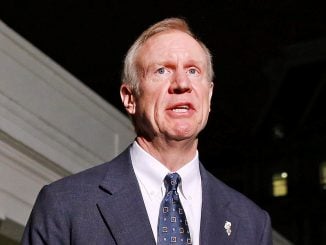With the advent of the Internet—and Facebook, Twitter and YouTube—the role of the news media has been forever transformed, with negative implications for both investing and the American psyche—as if there were a difference between the two. It is therefore important to take “business news” and media-driven investment research with more than the traditional grain of salt.
Gone are the days when the family gathered to hear CBS’s Walter Cronkite present world news in a fairly unbiased fashion, ending each broadcast with his signature line “And that’s the way it is”. Although he and others like NBCs Chet Huntley and David Brinkley were honorable individuals, they were able to “take the high road” in terms of civil reporting because of their virtual monopoly since there were only 3 networks in the 1960s: ABC, NBC and CBS. You either watched them or PBS which was pretty much focused on children’s “Sesame Street” and “Masterpiece Theater” for the highfalutin.
Change in news delivery started with the growth of cable TV and the introduction of CNN, thereby creating the 24-hour news cycle. Cable also brought highly focused programming such as The Weather Channel and business shows which were further fomented during the Internet bubble. Fast forward and today’s actual news is provided for free on the internet from sources all over the world and then broadcast on TV or radio.
The reality is that Walter Cronkite would starve if he tried to deliver news today as he did before. This is not due to a recent outbreak of “incivility” as some argue, but because his industry changed such that news for “news sake” is now freely available and its provision is no longer commercially viable. Sadly, profits that once came from good reporting are currently derived largely from terrifying and unsettling the public. Other than to instill fear, why else would the media play alarming whooshing sounds that mimic a missile landing between each “Breaking News” story?
Today’s viewers are fed a daily dose of the worst things that happened to any of the 7.6 billion of us with a “greatest hits” of horrifyingly bad weather, the missing and slain, or real-life documentaries of the unstable sharing their imbalanced lives on TV. More recently, the taking of political sides by channels has deepened the opportunity for commercial fear-mongering. It is no wonder so many feel the world has fallen apart even though it has never performed better in terms of metrics such as access to fresh water, medicine, education, transparency of information, product safety and government freedom.
Much as The Weather Channel did not change the weather, today’s raucous financial media sources have not changed the rules of successful investing.
An excellent recent example was the cryptocurrency craze of late 2017 and early 2018. Asked about Bitcoin in 2014, Warren Buffet told CNBC that “it’s a mirage basically.” One humorist recently said “dust was more valuable than Bitcoin.” However, seeking to overhype with click-bait, even the generally credible Wall Street Journal published the headline, “A Million-Dollar Bet That Bitcoin Will Hit $50,000” on December 21 ,2017 after the Bitcoin price had tripled in the previous three months to nearly $20,000.
Just like internet stocks in 2000, Bitcoin trades 80% lower now at just $3500.
Despite the media’s technical ability to instantly share more information than ever from around the globe, it does not mean that more than a fraction of it is newsworthy. It just means that someone has found a career in either enticing or scaring you with it.
Hype sells, but don’t buy it. We should all take long breaks from our televisions, radios and smartphones. And that’s the way it is….
This commentary is for informational purposes only and the opinions expressed herein are those solely of Andrew Burns, an advisor and principal at Hamilton Point Investment Advisors, LLC, in Chapel Hill, North Carolina. This is not a recommendation to buy or sell any particular security or product and should not be considered financial advice. Past performance is not indicative of future results.



